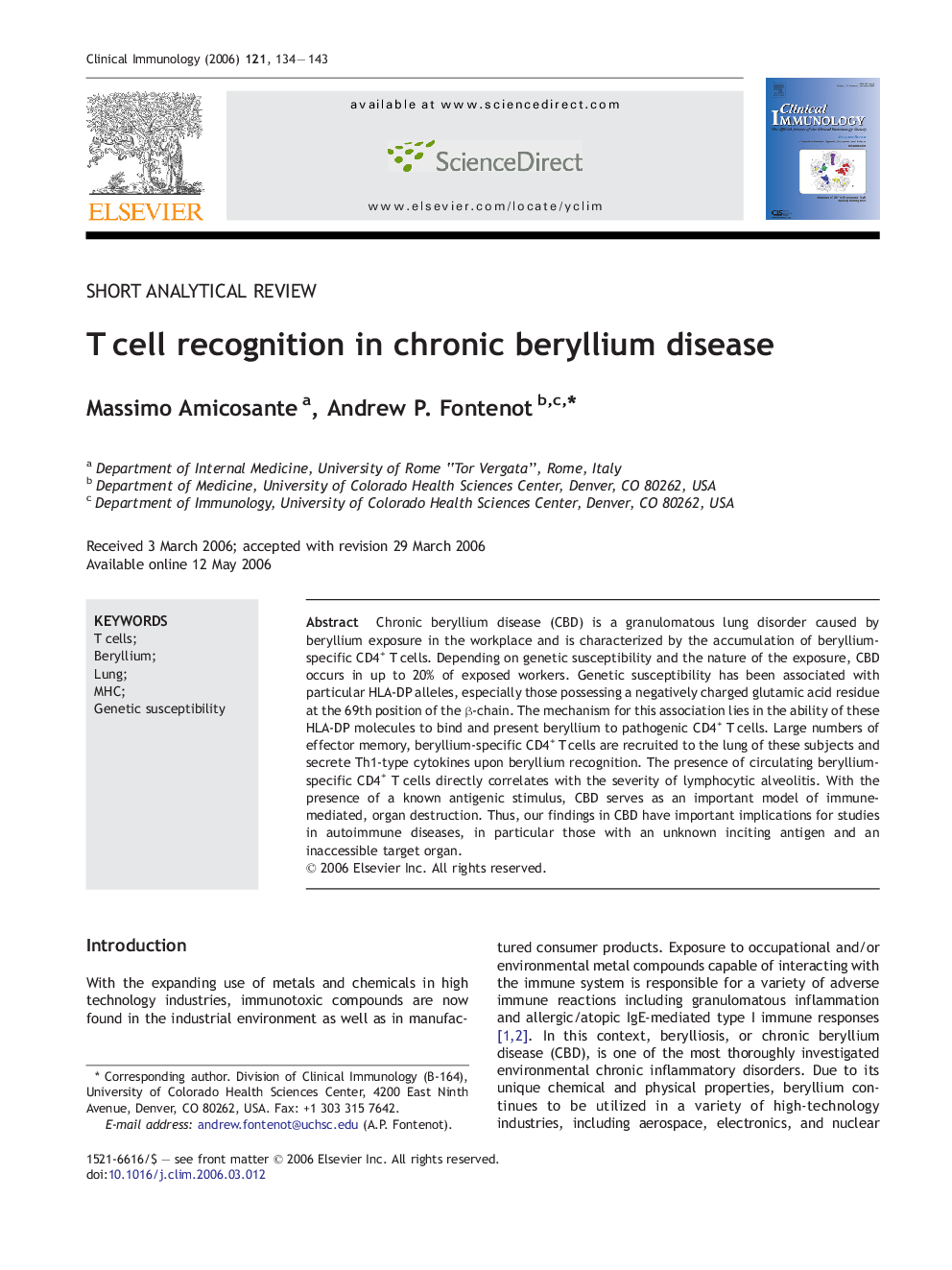| Article ID | Journal | Published Year | Pages | File Type |
|---|---|---|---|---|
| 3258524 | Clinical Immunology | 2006 | 10 Pages |
Abstract
Chronic beryllium disease (CBD) is a granulomatous lung disorder caused by beryllium exposure in the workplace and is characterized by the accumulation of beryllium-specific CD4+ T cells. Depending on genetic susceptibility and the nature of the exposure, CBD occurs in up to 20% of exposed workers. Genetic susceptibility has been associated with particular HLA-DP alleles, especially those possessing a negatively charged glutamic acid residue at the 69th position of the β-chain. The mechanism for this association lies in the ability of these HLA-DP molecules to bind and present beryllium to pathogenic CD4+ T cells. Large numbers of effector memory, beryllium-specific CD4+ T cells are recruited to the lung of these subjects and secrete Th1-type cytokines upon beryllium recognition. The presence of circulating beryllium-specific CD4+ T cells directly correlates with the severity of lymphocytic alveolitis. With the presence of a known antigenic stimulus, CBD serves as an important model of immune-mediated, organ destruction. Thus, our findings in CBD have important implications for studies in autoimmune diseases, in particular those with an unknown inciting antigen and an inaccessible target organ.
Related Topics
Life Sciences
Immunology and Microbiology
Immunology
Authors
Massimo Amicosante, Andrew P. Fontenot,
